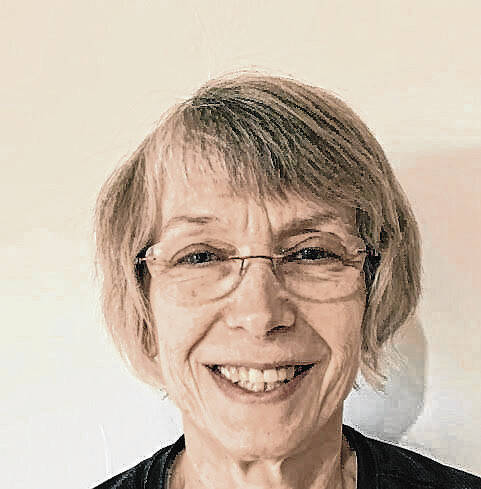It’s no coincidence that so many state legislatures are pushing for new laws that restrict American rights and freedoms in much the same way as portrayed in the George Orwell dystopian fiction novel, “1984.”
We must, after all, conform to a minority group’s opinion of how Americans should think and act and to achieve this goal, we need to eliminate socially unacceptable behavior — like drag queens reading books to children — by making these actions illegal.
It’s to protect our children — many of whom have access to the internet and its vast wasteland of inappropriate content — from such horrific dangers as men reading stories to them while dressed like Dolly Parton.
This is not a new idea, although it is a new “blame game.”
Back in our great-grandparents’ day, a large movement was centered around the belief that intoxicating liquors were responsible for most of our nation’s perceived social ills. They were certain that prohibition would successfully protect women and children, who were too often victims of husbands and fathers who drank away their paychecks and then went home to beat their wives and children.
Eliminating the “scourge of drunkenness” was expected to protect individuals and families. Instead, it led to a rise in organized crime associated with the illegal production and sale of alcohol, an increase in smuggling, and a decline in tax revenue. It turned ordinary Americans into criminals and made Al Capone rich.
Shockingly, some people still foolishly wasted away their paychecks and beat their loved ones without consuming alcoholic drinks. It’s almost like the problem was within the person rather than the bottle.
Yes, the last paragraph is intended to be sardonic. We have, after all, advanced sufficiently in our knowledge of medical science to have a better understanding of addiction even as we still too often try to fix the problem by simply outlawing and/or restricting access to what some of us use inappropriately. We have a long way to go in addressing this issue but it should be apparent to most of us that we lost the “War on Drugs” a very long time ago.
We also lost too many loved ones whose lives could have been so much better — and longer — if we’d focused as much attention on the nature of that addiction as we’d focused on cutting off the supply of what people were using to “fix” themselves.
But we’ve apparently learned nothing from our great-grandparents battle against the bottle or our current battle against the syringe and pills — except maybe how to better organize and push through legislation simultaneously in multiple states faster than it’s possible for the rest of us to do the research necessary to verify the proposed “solution” will not solve the problem and then organize against this tsunami of darn near identically worded bills.
So here we go again, with yet another battle for the heart and soul of our nation with a cry of “protect the children” from such things as the Rocky Horror Picture Show, Shakespeare in the Park, and librarians daring to distribute a book to a child that parents have found objectionable.
Do you know why seven fundamentalist Christian families in Tennessee filed a lawsuit seeking to ban The Wonderful Wizard of Oz in 1986? They objected to the novel’s depiction of nice witches.
Back in 1928 — 28 years after the book’s release — all public libraries banned the book because it was “ungodly.” It had “women in strong leadership roles.”
But proponents have good intentions. They don’t want vulnerable children “groomed” to become anything outside of what they want to be social norms.
Or in more simple terms: they want to put the genie back in the bottle.
They want a retreat to the “good old days” when gays stayed in the closets rather than walked openly hand-in-hand with the person they loved, little boys never became women or girls become men, and the only men who dressed up like women were comedians like Milton Berle whose routines reinforced how absurd it was for anyone to ever mistake a man in drag for a woman.
The justification for all of this sounds very reasonable when you listen to the advocates speak out about “protecting our children” but what it really boils down to is making everyone restrict their “abnormal behaviors” to inside their own home with the curtains drawn and never, ever speaking out openly about their “deviant” behaviors and/or desires.
Even on social media.
Because if we don’t see it, hear it, or speak about it, then we can pretend it doesn’t exist.
And we’re far more comfortable with a society where everyone looks, talks, and behaves just like us than we are with diversity.
Except, of course, for those of us who aren’t just like everyone else and can’t seem to make ourselves be that way no matter how hard we try.
For Americans like that, life isn’t very comfortable at all.
A lifelong resident of Hancock County, Linda Dunn is an author and retired Department of Defense employee.





